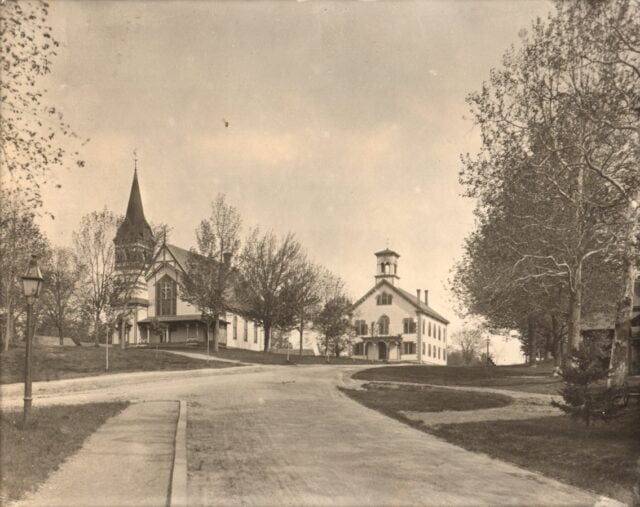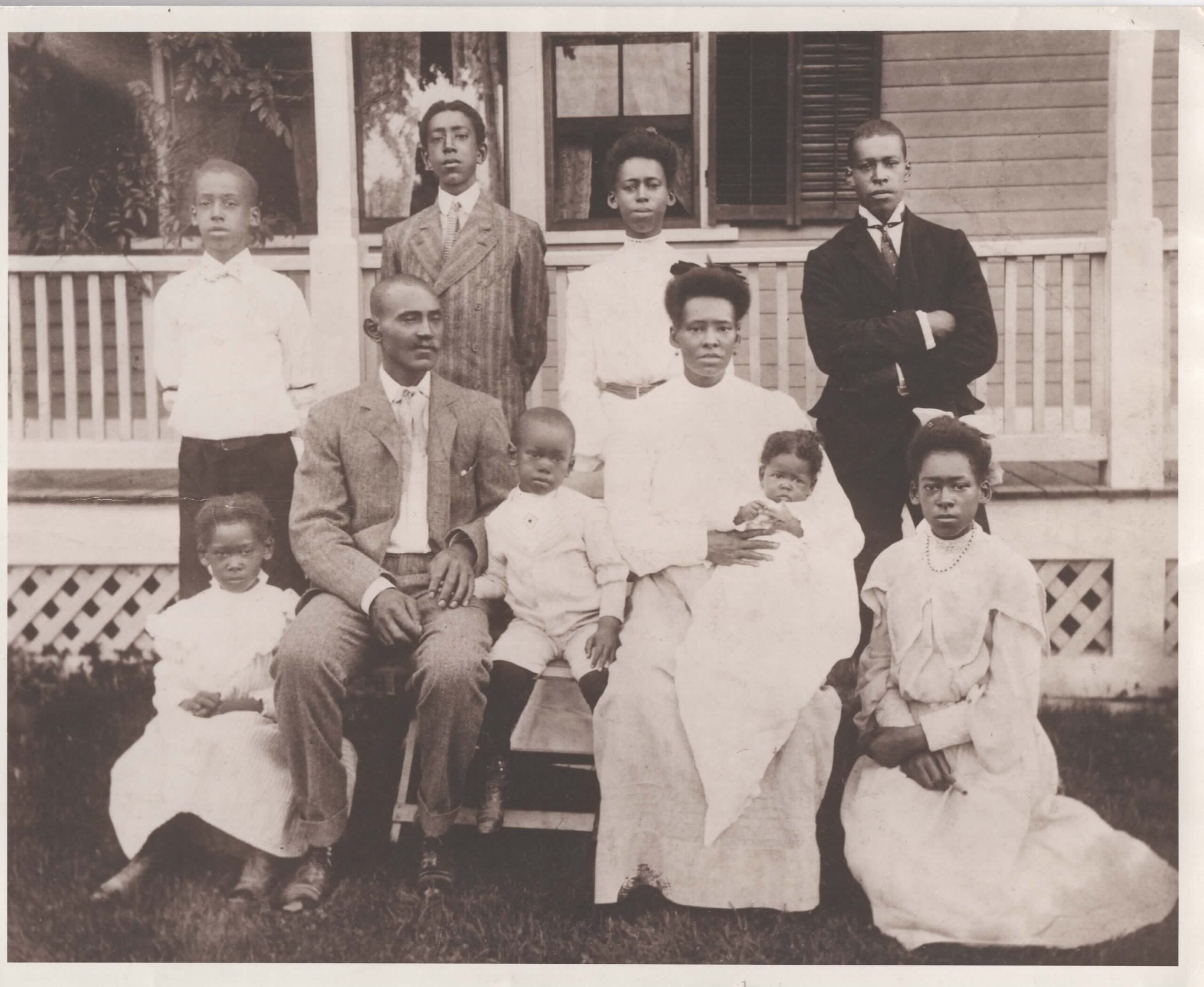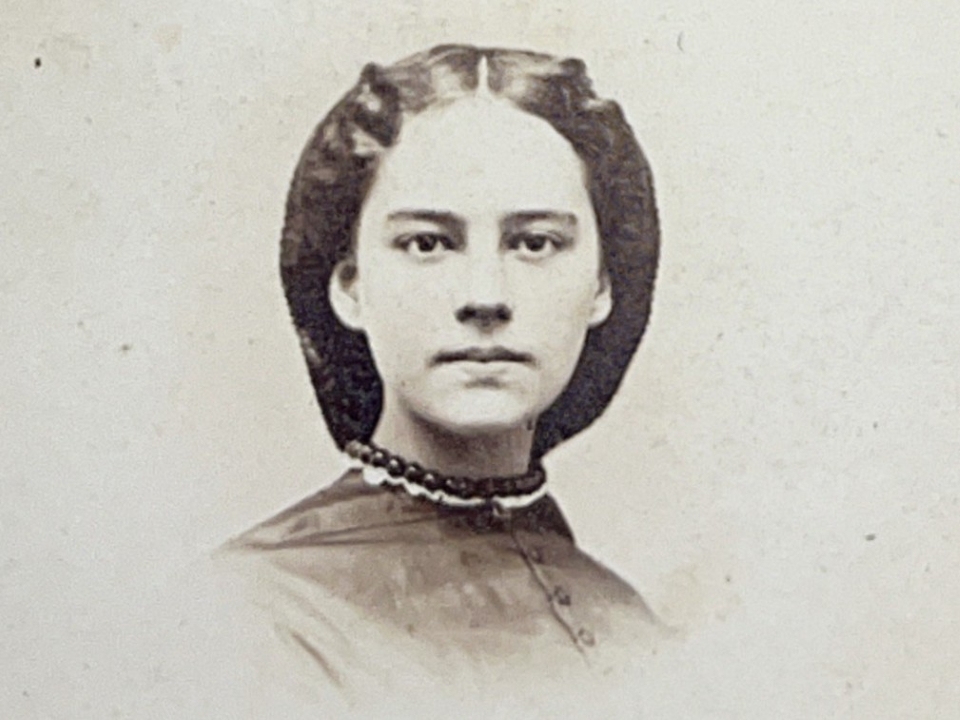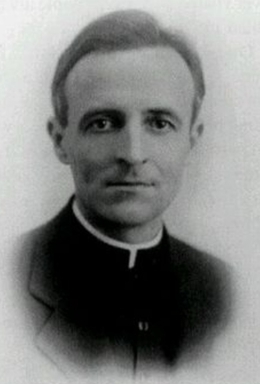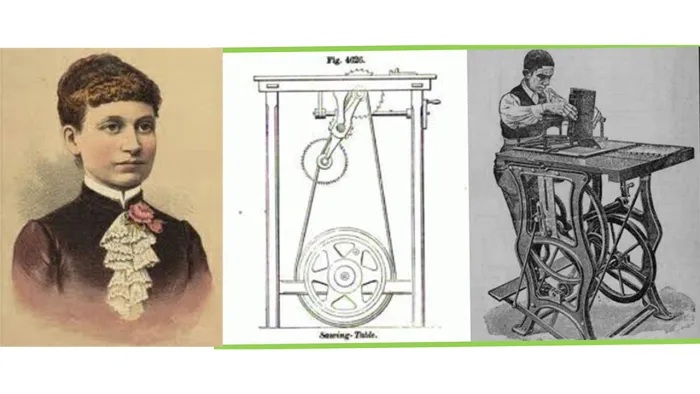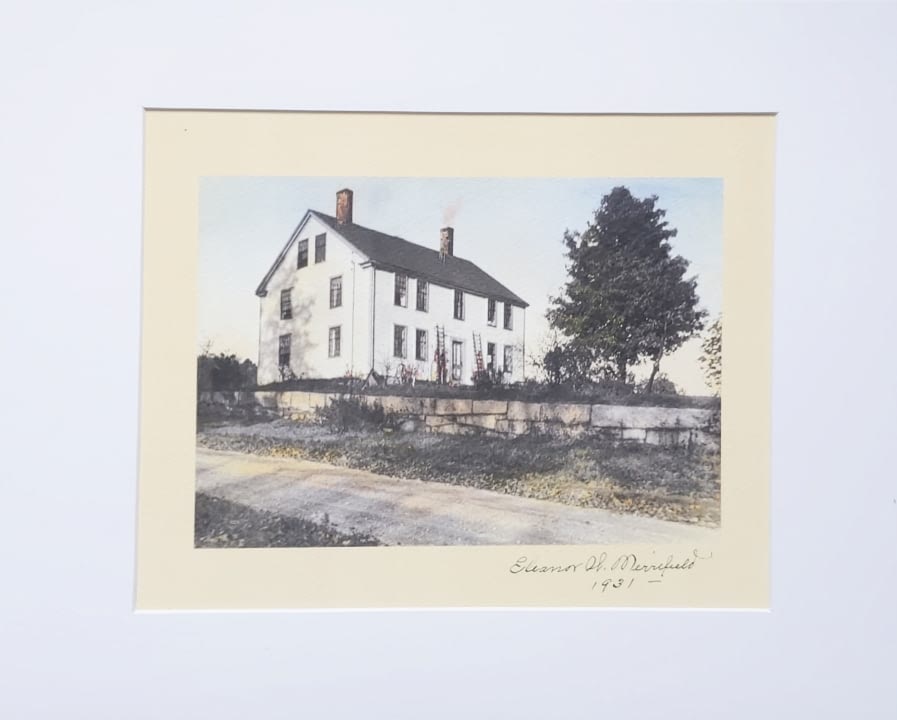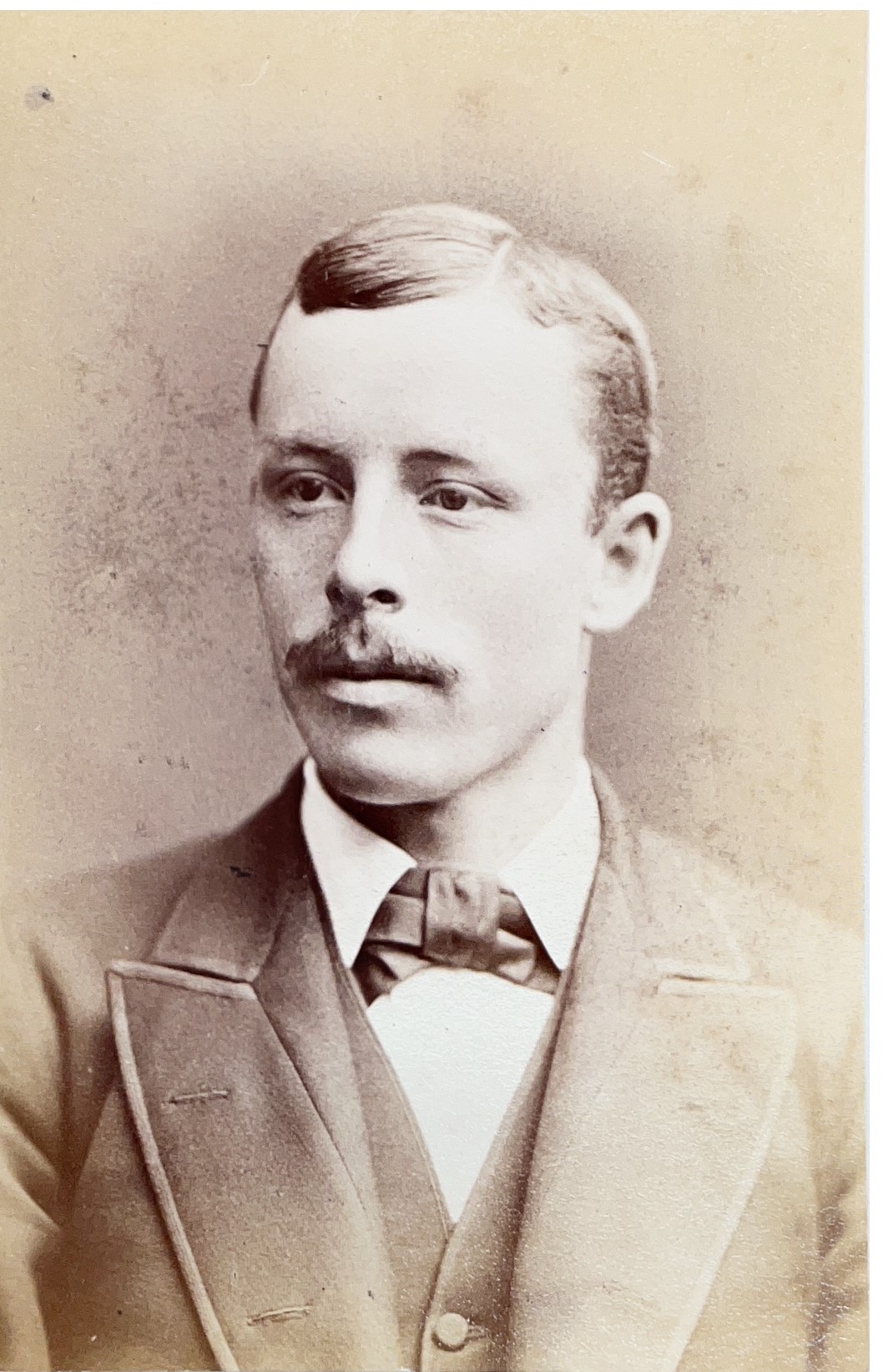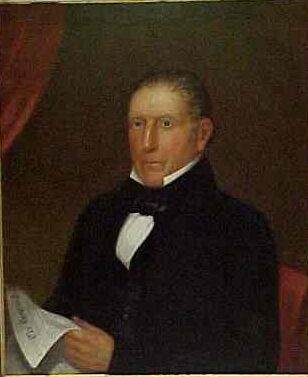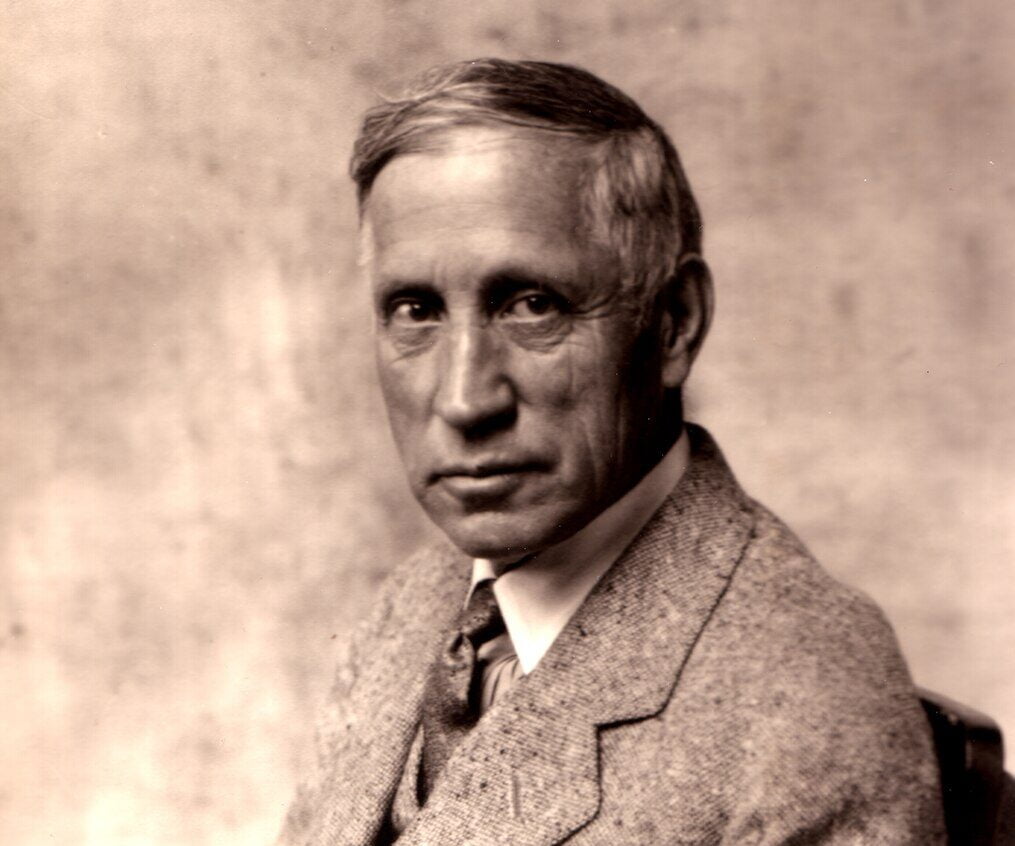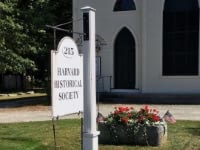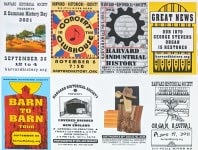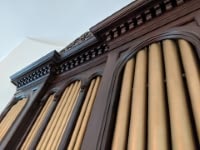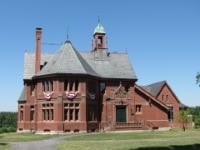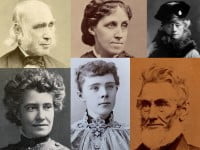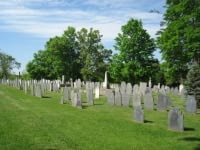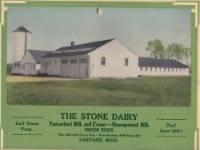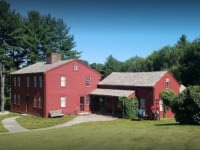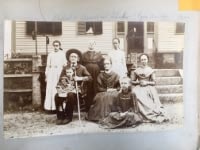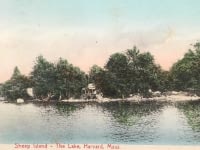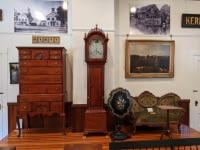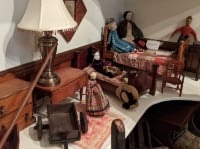Elvira Scorgie
Harvard historian (1887 - 1992)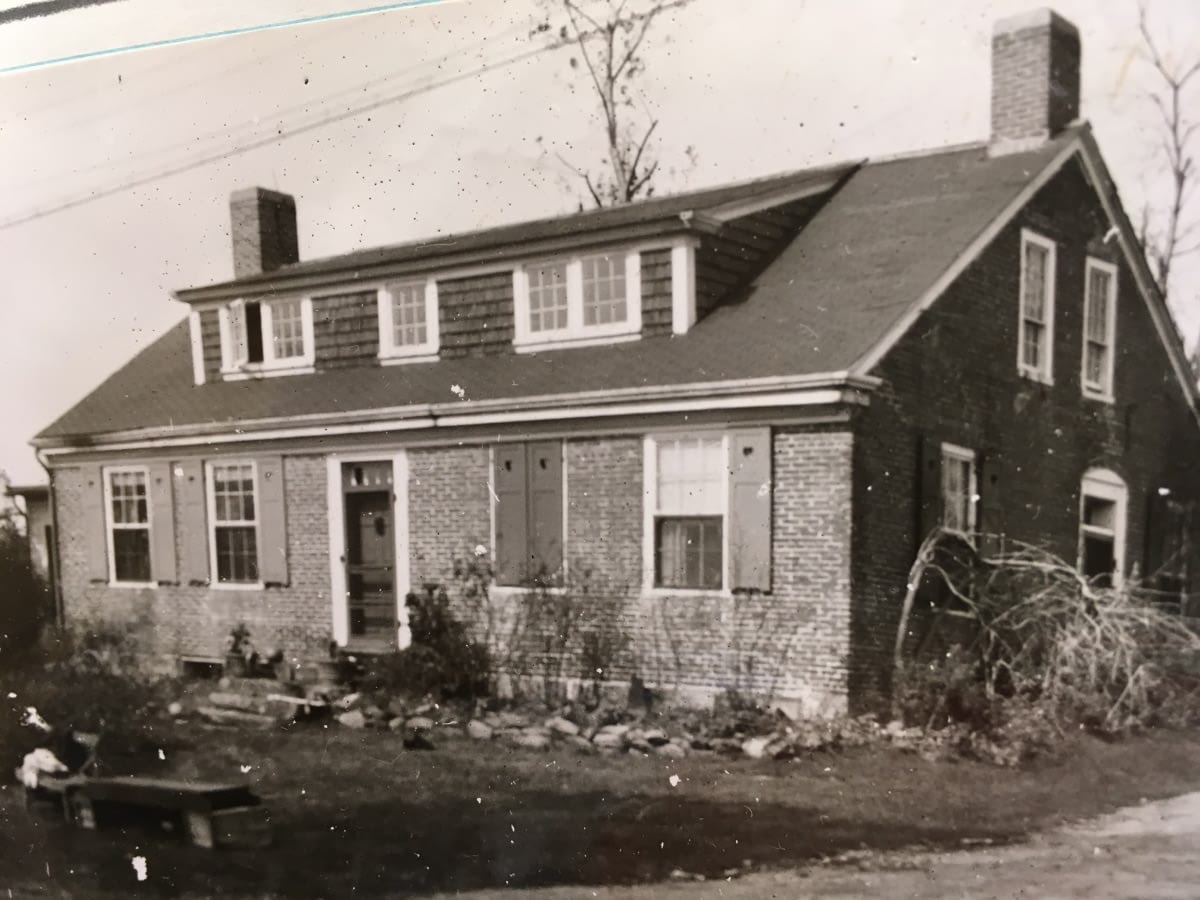
Seven Wells Farmhouse on Still River Road
Elvira Scorgie was born in Cambridge, Mass., in March 1887, the daughter of Mr. and Mrs. James Scorgie. In 1918 Elvira and her sister Anna moved to Seven Wells farm on Still River Road. Both earned a living teaching at Bromfield Academy and also growing and selling fruits and vegetables. After James Scorgie’s death in 1921, Helen Scorgie, a physician, moved to Still River to be with her daughters.
All three wanted to earn a living from their farm, and Elvira took a free course in farm management. They grew two kinds of apples, Macintosh and Baldwin. In addition to selling fruits and vegetables, homemade jellies and jams, they sold eggs from their chickens. They had six jersey cows and were granted the first permit in Harvard to sell milk to Still River neighbors and to the government.
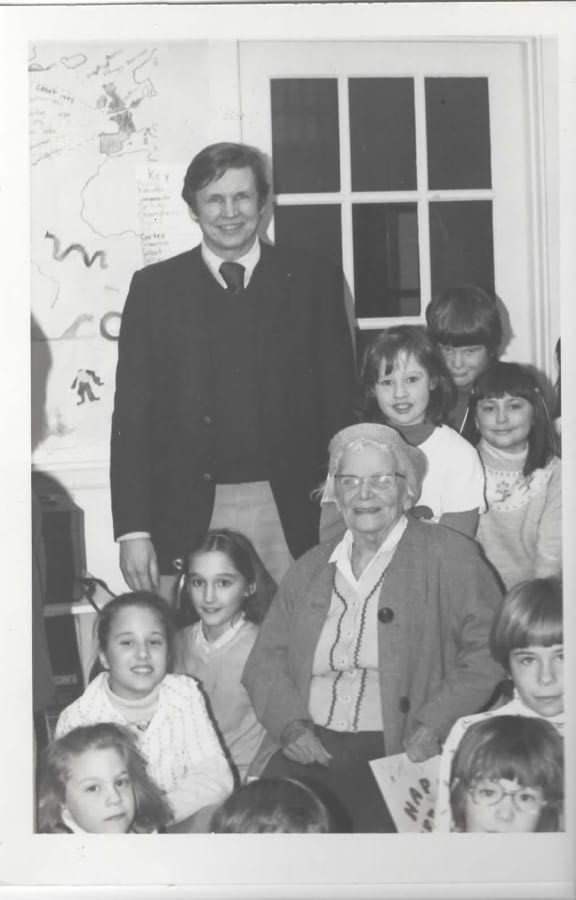
Miss Scorgie with Mr. Ingmanson, principal of Harvard Elementary School, and students.
On Saturdays, Anna loaded up their Ford pickup truck and went to the market in Boston.
After their mother’s death in 1938, Anna and Elvira continued to manage the farm. In 1946 Anna’s illness prevented her from driving, and since Elvira did not know how to drive a car, she needed to find another way to make a living; she became a docent at Fruitlands Museum. She was a daily walker, a lover of flowers and birds, and a student of Native American history. She was also an avid reader, especially of mysteries.
As a young woman, Elvira had studied music, including harmony and counterpoint, and was instructor of music at the Bromfield School for nine years. She later composed and arranged music for many programs in Harvard, including the town’s 250th Anniversary Pageant.
For years, Miss Scorgie taught a unit on Native Americans to fourth-graders.
She devoted much of her time to research among deeds and papers, making frequent trips to the Worcester Registry of Deeds, and she became an authority on the history of Harvard. Her research is archived at the Harvard Historical Society. When Miss Scorgie died in 1992, she was Harvard’s oldest citizen, aged 106.

Creator of many of the walking paths in Harvard, with a desire to combine nature with history
Many of the historical walks and paths in Harvard would not be here without Miss Elvira L. Scorgie (March 9, 1890 to 1993). Miss Scorgie dedicated a significant part of her life to the research of the history and genealogy of Harvard. She was a member of the Harvard Historical Society for many years and served as the Society’s Historian and Genealogist.
She is remembered especially for her guided walks around Harvard, of which she had many, all sufficiently narrated with much history, anecdotes, and some personal notes. There are few areas of Harvard that her walks did not cover. She was very athletic throughout much of her life, especially in her youth, so her walks were typically quick-paced and covered some miles. The key attributes of a historical walk are the lessons in history, of course, and the role that certain buildings and sites played in that history.


